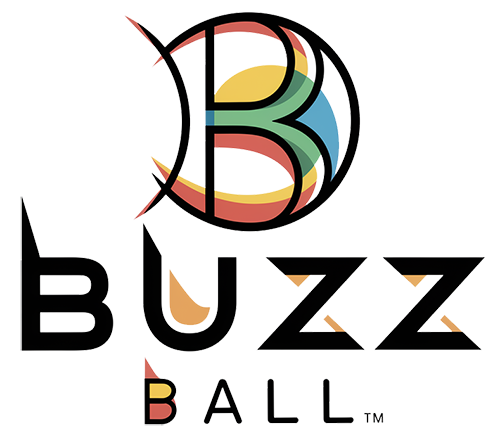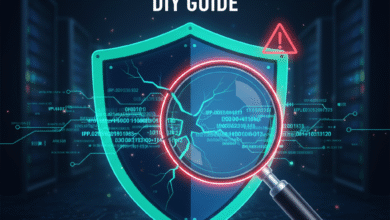
Introduction: Why I’m Writing About This
Best AI Tools for Small Business USA 2025: You know that feeling when you’ve just about had it with juggling everything yourself? He was sitting on the kitchen table with a lukewarm cup of tea, trying to keep my little one alive. Invoice stacked, email unanswered, marketing everywhere. I thought, “Surely there’s got to be something out there to help me, right?”
And that’s when I properly started digging into AI tools for small businesses. Not the shiny Silicon Valley jargon-filled nonsense, but the stuff that actually works for people like us – the ones running small shops, cafés, consultancies, or online stores from a laptop in the spare room.
So, I figured I’d share what I’ve learned. If you’re in the USA in 2025, running a small business and wondering how on earth to keep up with everything, here’s my round-up of the best AI tools for small business USA 2025 – in plain English, diary-style, no fluff.
The Everyday Struggle of Small Business Owners
Running a business is like being in ten jobs at once. One minute you’re the accountant, the next you’re a marketer, then suddenly you’re IT support. I used to joke that I needed a clone. Turns out, AI is the closest thing we’ve got.
But before you roll your eyes – I’m not talking about robots taking over. I mean practical, affordable software that helps shave hours off your week. Stuff that means you can actually go out for dinner without bringing your laptop along “just in case.”
Best AI Tools for Small Business USA 2025
Here’s my personal list, broken down by what they’re best at.
1. ChatGPT (for Content & Customer Conversations)
I’ll be honest – at first, I thought ChatGPT was just a gimmick. But once I asked it to draft product descriptions for my online shop, I was hooked. It writes emails, scripts, even helps me brainstorm blog posts like this one.
And here’s the kicker – you don’t have to sound robotic. With a bit of tweaking, you can keep your brand’s personality intact. For customer queries, I set it up to handle the common “Where’s my order?” or “What’s your return policy?” questions. Saves me hours.
2. QuickBooks with AI (for Accounting & Finances)
Numbers were always the bane of my life. If you’re anything like me, receipts get stuffed into random drawers and tax time feels like a horror movie. QuickBooks now has AI features that categorise expenses, predict cash flow, and send reminders.
It’s like having a bookkeeper who doesn’t nag. And in the USA, where tax rules can get fiddly, having software that spots potential deductions is gold.
3. Canva AI (for Marketing & Design)
Now, I love a good Instagram post, but I was no graphic designer. Canva AI practically holds your hand. You chuck in a prompt, and it creates professional graphics, reels, or even presentations.
I once made a flyer for a pop-up event in under 15 minutes. Normally, that would’ve taken me an entire evening and several cups of tea. The best part? No one could tell I didn’t hire a designer.
4. HubSpot AI (for Sales & CRM)
This one’s more serious, but if you’ve got customers to track, HubSpot’s AI is a lifesaver. It predicts which leads are worth chasing, automates follow-ups, and even suggests the best time to send an email.
I used to forget who I’d emailed last week and ended up repeating myself. HubSpot stopped that. Think of it as your personal sales manager, minus the hefty salary.
5. Jasper AI (for Copywriting & Marketing)
I tried Jasper when I needed ad copy that didn’t sound like it was written by a robot. Honestly, it felt like having a cheeky copywriter in your pocket.
Need a catchy tagline? Done. Want a 1,000-word blog? Sorted. Of course, you’ll still want to polish it, but it gives you a massive head start. Perfect if you’ve got a product launch but no time to sit staring at a blank page.
6. Zapier AI (for Automation)
Zapier’s been around for a while, but in 2025 its AI features are smarter than ever. Imagine this: someone fills out a form on your site, and without lifting a finger, their info goes into your CRM, triggers an email, and adds them to your sales list.
That used to take me ages manually. Now, it just happens. Honestly, it feels like magic.
7. Grammarly AI (for Polishing Content)
I’m decent at writing, but typos still sneak in. Grammarly AI goes beyond spotting spelling errors – it suggests tone adjustments, clarity, and even checks if your writing is too stiff or too casual.
It once saved me from sending a proposal that sounded way too pushy. Small win, but it kept a client happy.
8. Notion AI (for Organisation & Productivity)
Notion was already great for organising my messy thoughts. With AI, it’s like having a PA who can summarise meetings, draft project plans, or remind you what’s overdue.
I keep all my to-dos, notes, and even content calendars there. It’s basically the digital version of my brain – only tidier.
9. Copy.ai (for Social Media)
Social media used to feel like shouting into the void. Copy.ai helps generate post ideas, captions, and even full campaigns. I once had it write a week’s worth of posts for my shop in under an hour.
That meant I could actually enjoy Sunday brunch instead of panicking over what to post on Monday morning.
10. Otter.ai (for Meetings & Transcriptions)
If you’ve ever sat through a meeting and later thought, “What did we even decide?” – Otter.ai is your mate. It records, transcribes, and highlights the key points.
I used it when I started doing client calls. Instead of scribbling notes, I could just focus on the chat and review the transcript later. Game-changer.
How to Choose the Right AI Tool
Here’s the truth – you don’t need them all. I made that mistake early on, signing up for loads of subscriptions and barely using half.
Think about what slows you down the most. Is it emails? Invoicing? Marketing? Start there. Try one tool, get comfortable, and then expand. Don’t fall into the trap of thinking more tools = more productivity. Sometimes, less really is more.
FAQs
Q1: Are AI tools expensive for small businesses?
Not necessarily. Many offer free plans or affordable tiers. The key is picking the one that solves your biggest headache.
Q2: Do I need to be tech-savvy to use them?
Nope. Most of these tools are designed for everyday people. If you can send an email, you can figure them out.
Q3: Will AI replace my staff?
I don’t see it that way. It’s more like giving your team (or yourself) superpowers. It frees humans to focus on the stuff machines can’t do – like building relationships.
Q4: Which tool should I start with?
If you’re unsure, start with something general like ChatGPT or Canva AI. They’re flexible and easy to use straight away.
Final Thoughts: A Personal Note
If you’d told me two years ago that I’d be leaning on AI every single day, I’d have laughed. But honestly? It’s saved my business from going under more than once.
AI doesn’t make me feel less human. If anything, it gives me back time to actually be human – to spend a weekend with my family, to sit down with friends, to breathe.
For small businesses in the USA in 2025, the best AI devices are not just fancy add-on-they are survival kits. Choose a perfect one, and it will seem that you have hired a full -time assistant for the price of a tech.
So, go on. Try one. Your future self will thank you.




